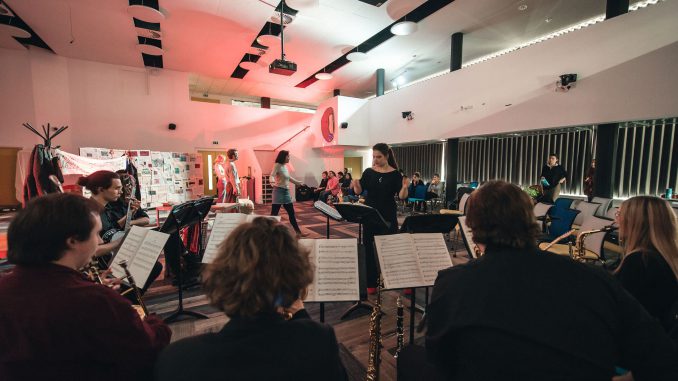
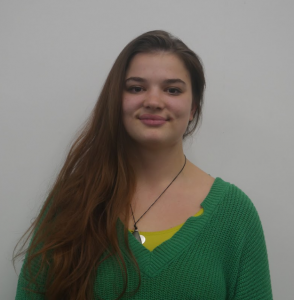
How do I continue with my instrument while at King’s? Having followed the path of becoming a violinist and graduating from conservatoire in 2016 (before coming to university), the topic about keeping up your instrument is particularly relevant and close to me. It was definitely something I was anxious about when moving to London to study a Bachelor of Music, which is a significantly more general study of music than a concentrated diploma in violin, for example. These anxieties were quickly settled once I started my course.
This is for two reasons. Firstly, I realised there were more than enough possibilities and resources at hand to continue as I wanted and
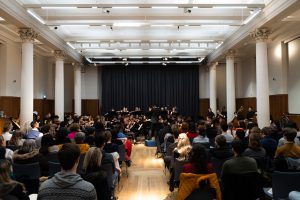
felt, but secondly, I was so busy with the rest of my work in the degree that I began to not worry about doing less with my instrument! Of course, this wouldn’t be the same for everyone, as I know some people specifically want to continue their instrument studies at the similar level and frequency they were doing before. But to this I would say that although King’s gives you very different view of music than a conservatoire, the potential to develop as a player is very similar and is actually more holistic and comprehensive. By this I mean that being exposed to the breadth of musical thought from the academic side of the degree (ranging from classical musicology to experimental music studies to ethnomusicology) will necessarily help performers to develop, as it offers a deeper understanding of music more generally. In regard to technical skills, this of course depends on the time you dedicate to it – and King’s offers everything you need to be able to dedicate any amount of time you want, depending of your goals and needs.
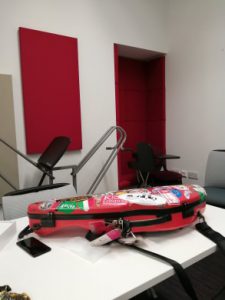
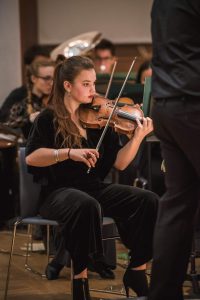
King’s offers at least thirty practice rooms throughout Strand Campus. These rooms are available to book every day of the year and the rooms with pianos give priority to pianists (in order to be fair to pianists who obviously cannot bring their instrument around!). The department has about five grand pianos! Furthermore, King’s has a partnership with the Royal Academy of Music. This means that every student has the opportunity to be taught by either a postgraduate student or professor from the Academy. In both cases, there are positives. A postgraduate student can give you the flexibility to prioritise academic work over your instrument if that is what you need, for example. If you are looking for a more serious continuation of your instrument, a professor will be able to give you the same quality of teaching you would get at a conservatoire. Obviously, all of this is dependent on your individual situation and teacher. The main thing is that you’ve got the resources to choose what you want!
On top of all of this, King’s has many music societies (run by students just like you) which give you opportunities to keep playing. These include the King’s College Symphony Orchestra, the Modern Music Society Sinfonietta, the King’s Jazz Society Big Band as well as to option to play in pit orchestras for musicals or operas. There are so many options that I guarantee you its impossible to do them all. You are sure to be kept busy and never left unsatisfied by the choices presented to you.
Of course, the intensity and frequency at which you continue to play your will ultimately be up to you. What you can be sure of is that at King’s, the more you give, the more you get; if people register your interest, you will get the opportunities you want. It’s a very musically stimulating environment, so even though it may not be a performance-oriented degree, its very possible that you will enjoy playing your instrument more than if you went to a conservatoire. For me, at least, this has been the case – the breadth of the King’s Bachelor of Music has made me love music, as a whole, so much more. This means that when I perform, I am discovering more and more about it as I go.
Read More:
Check out Rita’s Day in the Life of a Music Student, as well as Virginia’s Day in the Life of a Postgraduate Music Student.
Click here to find out more information about Music Degrees at King’s College London.

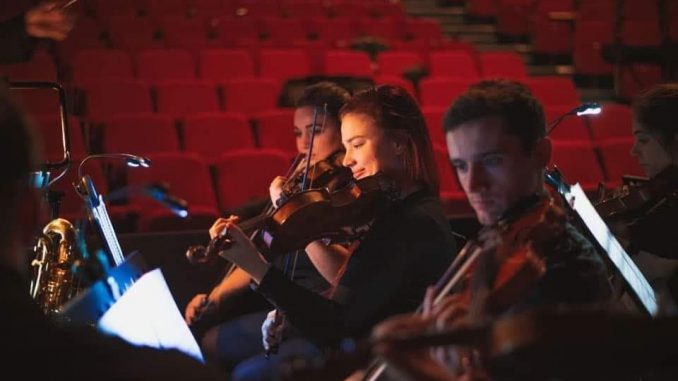
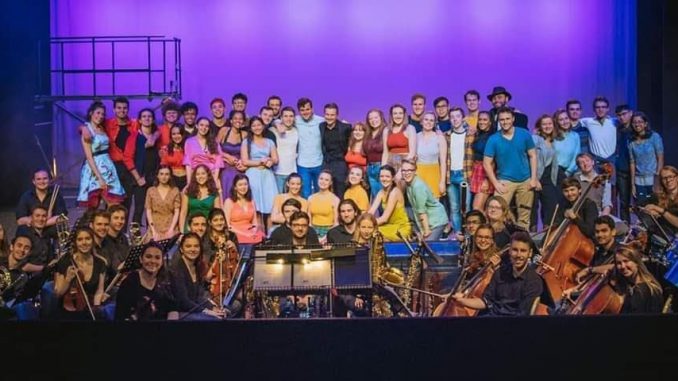
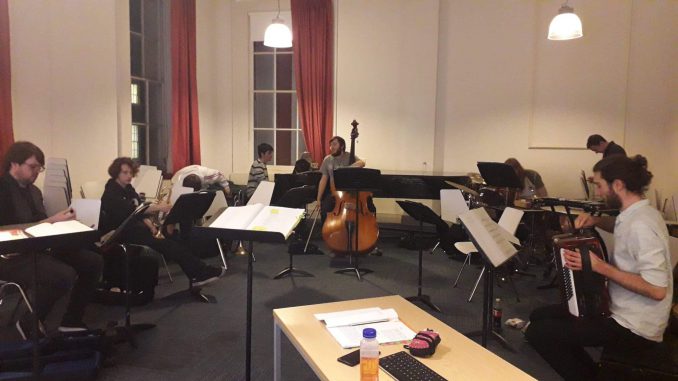
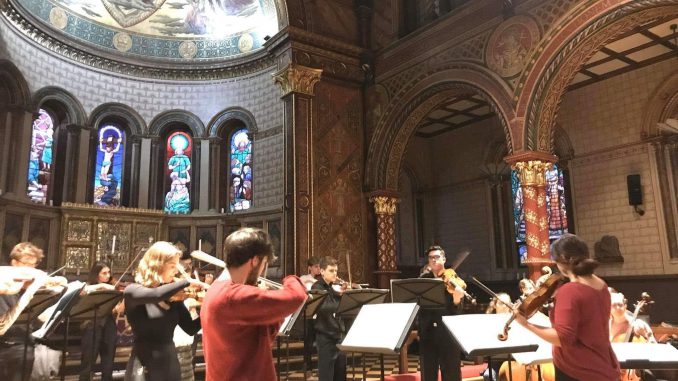
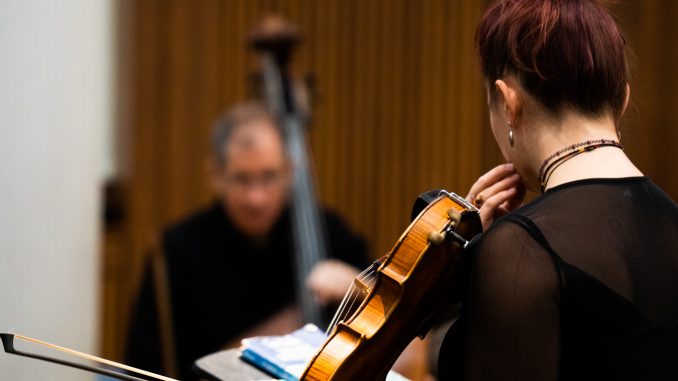
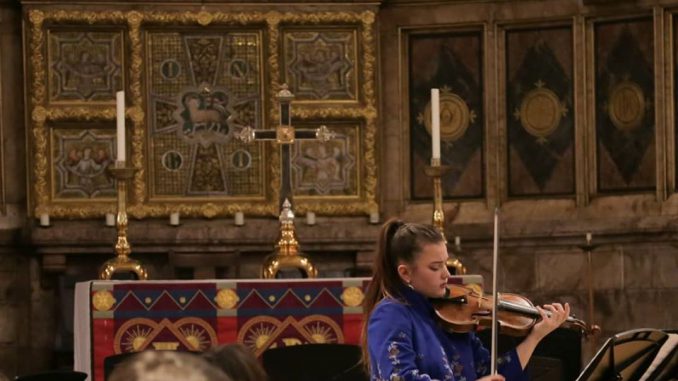
Leave a Reply